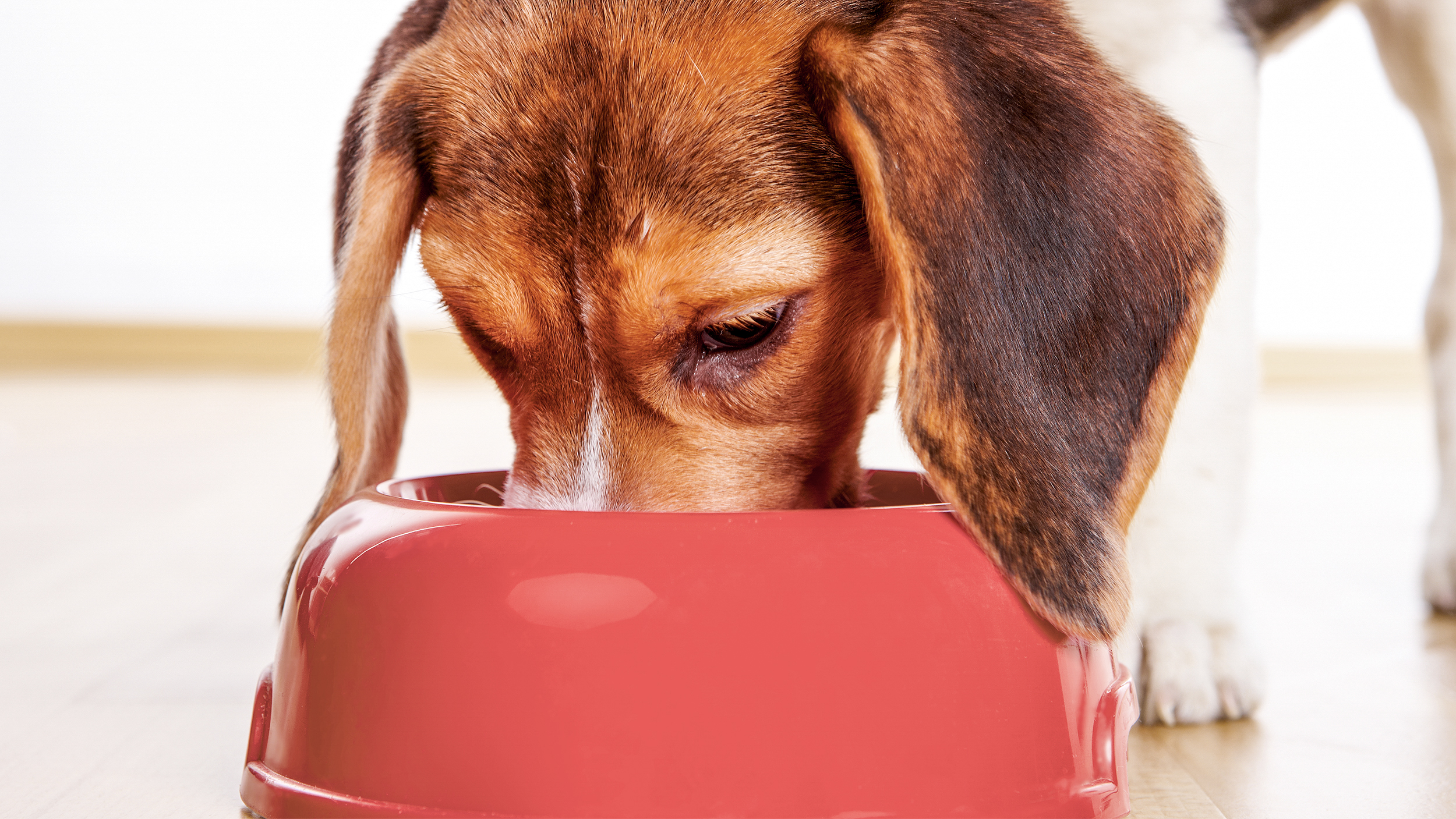Chế độ ăn uống và sức khỏe tiêu hóa của chó

Cũng giống như con người, chó có thể gặp phải các vấn đề về tiêu hóa gây khó chịu, các triệu chứng không mấy dễ chịu và đôi khi là các vấn đề sức khỏe rộng hơn. Chế độ ăn uống là một yếu tố quan trọng góp phần kiểm soát các tình trạng nhạy cảm tiêu hóa và duy trì một hệ tiêu hóa khỏe mạnh.
Hệ tiêu hóa của chó hoạt động như thế nào
Theo mỗi giai đoạn của hệ tiêu hóa, chó tiêu hóa và hấp thụ các chất dinh dưỡng từ thức ăn. Một trong những cơ quan chính thực hiện việc này là ruột non. Cơ quan này có diện tích bề mặt rất lớn với các loại tế bào khác nhau để giúp cho việc hấp thụ chất dinh dưỡng hiệu quả nhất có thể. Trong ruột non, chó của bạn hấp thụ chất béo, vitamin, cacbohydrate và khoáng chất, đồng thời hoàn thành quá trình tiêu hóa và hấp thụ protein bắt đầu trong dạ dày.
Trên khắp các cơ quan này, các vi sinh vật – còn được gọi là vi khuẩn 'có lợi' – góp phần giúp hệ tiêu hóa hoạt động và khỏe mạnh. Các vi khuẩn hiện diện trong đường tiêu hóa được điều chỉnh bởi di truyền và các yếu tố khác, bao gồm cả chế độ ăn uống. Trong ruột non, những vi khuẩn có lợi này đi cùng với các tế bào hoạt động như một phản ứng miễn dịch bảo vệ, chống lại các vật thể lạ hoặc vi khuẩn 'có hại'.
Chó của bạn có khả năng dung nạp một cách tự nhiên các vi sinh vật của chúng, nhưng nếu chúng phát triển tình trạng không dung nạp, điều này có thể dẫn đến các vấn đề mãn tính về đường tiêu hóa. Tương tự, nếu các tế bào phản ứng miễn dịch bắt đầu phản ứng với những thứ mà nó thường dung nạp, hệ tiêu hóa của chó có thể bắt đầu phát triển tình trạng không dung nạp các yếu tố vô hại thông thường, chẳng hạn như thức ăn.

Chế độ ăn uống và khả năng tiêu hóa của chó
Thức ăn của chó có thể ảnh hưởng đến khả năng tiêu hóa và hệ vi sinh đường ruột của chó. Chế độ ăn uống đa dạng có thể gây căng thẳng không cần thiết cho khả năng tiêu hóa của chó và gây ra các vấn đề.
Thức ăn của chó cần phải dễ tiêu hóa để tránh tình trạng nhạy cảm tiêu hóa và chứa các chất dinh dưỡng thiết yếu dễ hấp thụ. Protein là một thành phần của chế độ ăn uống, thường được cung cấp từ các nguồn động vật, chẳng hạn như thịt gà. Thực phẩm được sản xuất với chất lượng cao sẽ sử dụng protein dễ tiêu hóa và ít gây ra các vấn đề về tiêu hóa hơn. Ví dụ, gluten lúa mì rất dễ tiêu hóa và là một nguồn protein dồi dào.
Chất xơ
Chất xơ là một phần quan trọng trong chế độ ăn uống của chó nhưng cần được cân bằng. Có thể sử dụng chất xơ như một phần trong chế độ ăn uống của chó để giúp điều chỉnh chuyển động trong ruột già và cải thiện chất lượng phân, đặc biệt hữu ích nếu chó của bạn bị nhạy cảm tiêu hóa hoặc có chất lượng phân kém.
Chất xơ có thể hỗ trợ chức năng đường tiêu hóa khỏe mạnh và giúp chó cảm thấy no sau bữa ăn. Prebiotic là một loại chất xơ có thể giúp các vi khuẩn có lợi phát triển mạnh mẽ trong hệ tiêu hóa của chó.
Cacbohydrate
Cacbohydrate là một thành phần quan trọng trong thức ăn của chó vì chất này cung cấp một nguồn năng lượng tuyệt vời. Ngoài ra, nguồn cacbohydrate trong thức ăn của chó phải rất dễ tiêu hóa.
Chất béo
Chất béo có thể là một thành phần hữu ích trong việc kiểm soát nhạy cảm tiêu hóa ở chó. Chế độ ăn uống có hàm lượng chất béo cao có thể cung cấp năng lượng cần thiết cho chó một cách hiệu quả mà không cần phải tiêu thụ một lượng thức ăn lớn. Tuy nhiên, chế độ ăn uống có hàm lượng chất béo thấp hơn có thể giúp ích cho những trường hợp dạ dày nhạy cảm hoặc khi chó của bạn nhạy cảm với chất béo trong thực phẩm.
Nếu bạn nhận thấy chó của mình đang gặp vấn đề về tiêu hóa, hãy nhớ thăm khám bác sĩ thú y. Họ có thể tư vấn về chế độ ăn uống giúp duy trì hệ tiêu hóa khỏe mạnh cho chó của bạn.
Tìm bác sĩ thú y
Thích và chia sẻ trang này